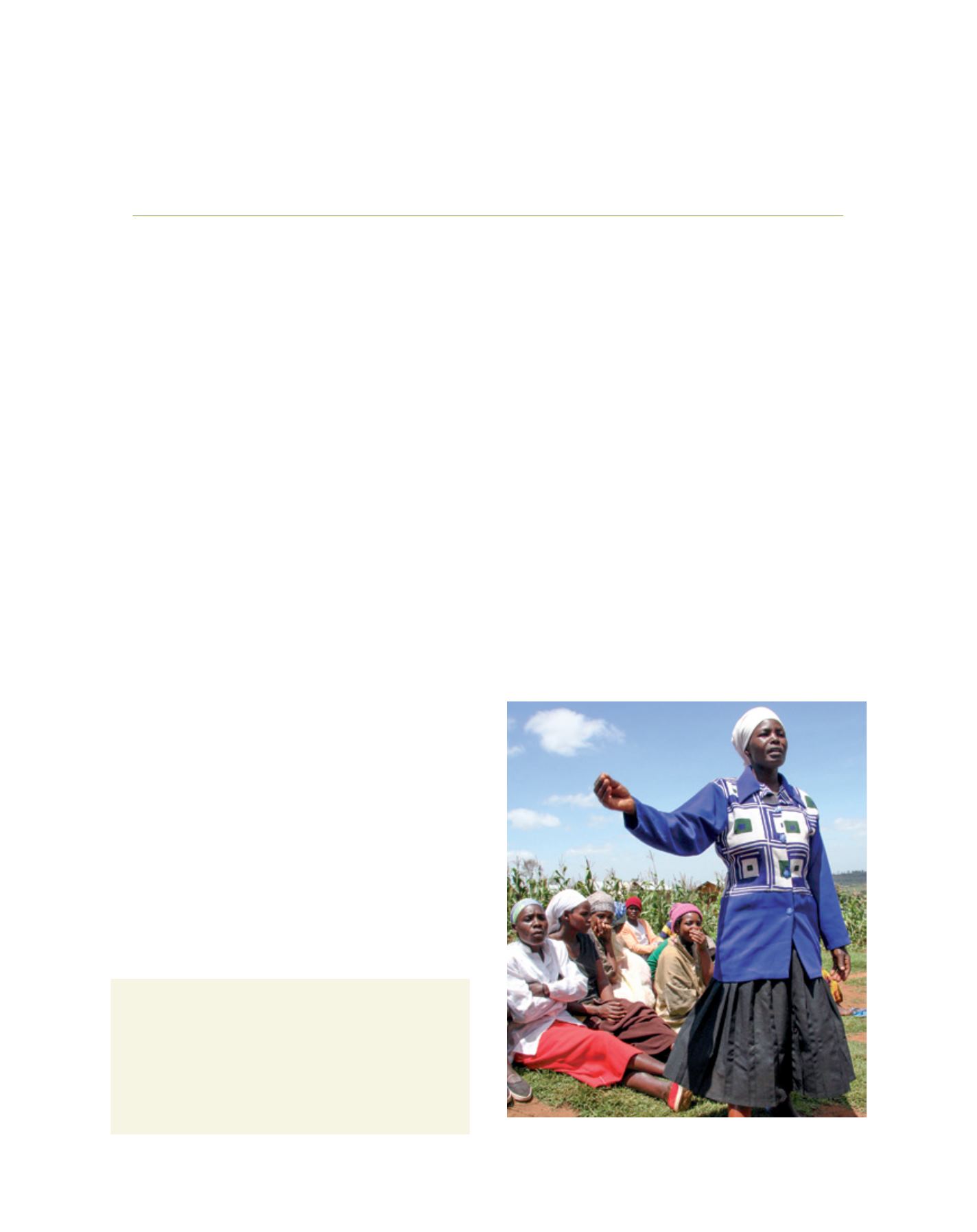

[
] 177
The International Land Coalition:
upholding the land rights of family farmers
Michael Taylor and Jan Cherlet, International Land Coalition Secretariat
“We will work together as a coalition to … ensure equitable land
distribution and public investment that supports small-scale
farming systems”
– Antigua Declaration of the International Land Coalition,
2013
“Negotiation, negotiation, negotiation. It works.”
– Esther Obaikol, former Uganda Land Alliance Executive Director
T
he International Land Coalition (ILC)
1
is a global
alliance of over 150 organizations, spanning from
peasant and indigenous people’s movements to
global multilateral organizations. Despite wide differences
in perspectives and methods of working, ILC members
share a common perspective that the developmental chal-
lenges facing our planet – food security, reducing poverty
and inequality, environmental stewardship and adapting to
climate change – can only be overcome with a strong focus
on equitable and secure land and natural resource rights.
When ILC’s members came together in 2013 for their biennial
assembly in Antigua, Guatemala, the host national peasant
organizations provided a glimpse into the critical role of family
farmers in a country where two-thirds of the population lives
below the poverty line. Members visited dynamic cooperatives
in which family farmers worked together to market their high-
quality produce to markets within the country and beyond.
ILC members also heard from families in Guatemala who
had been forcibly removed from their land to make way
for corporate agricultural production – for instance in the
Polochic valley. The context of Guatemala showcases the
dramatic challenges that are common to family farmers in
agrarian economies across the world:
Agrarian economies are profoundly affected by corporate
and other interests that are external to local territories,
taking control of land, productive resources and food value
chains, alienating land-users from their environment, and
posing great risks of marginalizing small-scale producers
and family farmers.
2
Despite some cases where investments create opportunities,
the global rush for land is transforming vast swathes of land
previously used or accessed by smallholders at a severe cost to
local family farmers, including their dispossession. Evidence
suggests that a key determinant of whether family farmers
gain or lose in this context of rural transformation is whether
or not they have secure land rights.
An estimated 2 billion people on this planet, the majority of
which are family farmers, live and produce their food on land to
which they enjoy customary rights, but on which national law
does not recognize or defend their tenure.
3
Although in many
cases they have been using the land for generations, in the eyes of
the law they are seen as nothingmore than ‘squatters’ on state land.
The urgency of recognizing land rights has attracted global
attention. A significant step towards this has been the devel-
opment and adoption in 2012 by governments, civil society
and the private sector of the
Voluntary Guidelines on the
Responsible Governance of Tenure of Land, Fisheries and Forests
by the Committee for World Food Security.
The following six case studies illustrate some of the ways in
which ILC and its members have successfully worked together,
at local, national, regional and global levels, to support family
farmers to secure their land, water and natural resource rights,
an important step in securing the future of family farming.
Women are often denied land rights, and this is a key area of activity for ILC
Image: Image: ILC Secretariat
D
eep
R
oots
















